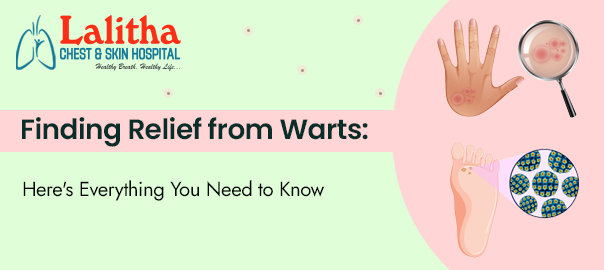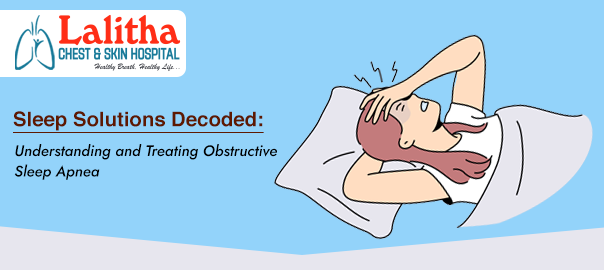Warts are small, non-cancerous growths on the skin caused by the human papillomavirus (HPV). They can appear anywhere on the body but are most commonly found on the hands, fingers, feet, and face. Warts are typically rough to the touch and can vary in appearance, ranging from flat, smooth lesions to raised, cauliflower-like bumps.
“They are usually painless but can sometimes cause discomfort, especially if they develop in areas prone to friction or pressure. Warts are contagious and can spread through direct contact with the virus, such as skin-to-skin contact or contact with contaminated surfaces,” says the best skin specialist in Karimnagar, Dr. B. Jyothi.
In this blog, with insights from dermatologist and wart removal specialist Dr. B. Jyothi, we aim to delve deeply into the causes and symptoms and improve your understanding of available treatment options.
What causes warts?
Warts are caused by infection with the human papillomavirus (HPV). The virus enters the body through tiny cuts, breaks, or other vulnerable sites in the skin. Once inside, HPV causes the skin cells to increase, resulting in the formation of a wart.
Damaged skin: Warts are more likely to develop on skin that has been cut, scratched, or otherwise damaged.
Walking barefoot in public places: HPV can be spread through contact with surfaces that have been contaminated with the virus, such as gym floors, swimming pool areas, or public showers.
Factors such as a weakened immune system, skin trauma, or prolonged exposure to moist environments may increase the risk of developing warts.
Are warts contagious in nature?
“Yes, warts are highly contagious. They can spread through direct contact with an infected person and indirect contact with surfaces or objects contaminated with the virus,” says Dr. B. Jyothi, the best dermatologist in Karimnagar.
What are the symptoms of warts?
The symptoms of warts can vary depending on the type of wart and its location on the body. However, some common symptoms of warts include:
- Skin Growth:Warts typically appear as small, raised bumps on the skin. They may be flesh-coloured, pink, white, or tan and can vary from very small to several centimetres in diameter.
- Rough Texture: Warts often have a rough or uneven texture, resembling a cauliflower or a small blister.
- Pain or Discomfort:While warts are usually painless, they can sometimes cause discomfort or pain, especially if they develop in areas subject to pressure or friction, such as the soles of the feet (plantar warts) or the hands (common warts).
- Black Dots:Some warts may contain tiny black dots, clotted blood vessels that supply nutrients to the wart.
- Clusters or Multiples:Warts can occur singly or in clusters, especially in areas where the skin has been damaged or injured.
- Changes in Appearance:Warts may change over time, growing larger or spreading to nearby skin.
- Location-Specific Symptoms:Additional symptoms may occur depending on the type of wart and its location. For example:
- Plantar warts on the soles of the feet may cause pain or tenderness when walking.
- Genital warts may cause itching, discomfort, or bleeding, especially during sexual activity.
What can one do to minimize the spread of warts?
According to skin specialist Dr. B. Jyothi in Karimnagar, practicing good hand hygiene, avoiding direct contact with warts, covering them with a bandage, refraining from picking or scratching, and wearing footwear in public areas can help minimize or stop the spread of warts.
Is there a cure for warts? How are warts treated?
There isn’t a definitive cure for warts since a viral infection causes them, specifically the human papillomavirus (HPV). However, several treatment options are available to help manage and remove warts.
- Cryotherapy (Freezing):A healthcare provider may use liquid nitrogen to freeze off the wart, causing it to fall off within a few days to a week. Cryotherapy is a standard warts treatment typically performed in a healthcare setting.
- Prescription Medications:A healthcare provider may sometimes prescribe stronger topical medications containing salicylic acid or other chemicals to treat warts.
- Laser Therapy:Laser treatment may destroy the blood vessels supplying the wart, causing it to die and fall off. This method is often reserved for more significant or more persistent warts.
- Surgical Removal:Surgical excision may be necessary for large or stubborn warts that do not respond to other treatments. This involves cutting out the wart under local anaesthesia.
It’s important to note that no single treatment is guaranteed to be effective for everyone, and multiple treatments may be needed to remove a wart altogether.
Click here for more information about warts and their treatment options. For detailed information on warts and potential treatment approaches, it is recommended that you schedule an appointment with a specialized dermatologist.
If you’re searching for a “dermatologist for wart removal” or a “wart removal clinic near me” on Google, your search ends here. With Karimnagar’s top dermatologist, Dr. B. Jyothi, Lalitha Chest and Skin Hospital offer advanced treatments for all types of warts. For inquiries, feel free to contact us at https://lalithachestandskinhospital.com/



